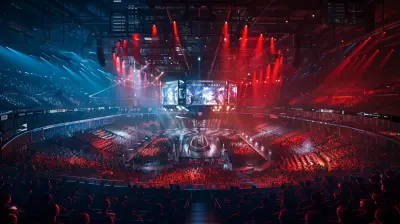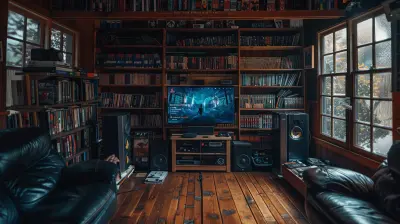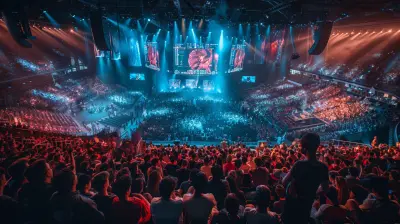How Single Player Games Keep Innovating Through Modding Communities
23 July 2025
When you think of a single-player game, what comes to mind? A rich story, maybe? A crafted world built for one, without the chaos of online multiplayer? Well, here’s the kicker — even though these games are often completed once and shelved, they’re far from dead. In fact, they’re living, breathing playgrounds for innovation. And who keeps that spark alive? Modding communities.
Modders — those passionate players who tinker, tweak, and transform games — are the secret sauce behind many single-player games that have stayed relevant long after their initial release. Let’s talk about how these communities are not just changing games — they’re reimagining them completely.
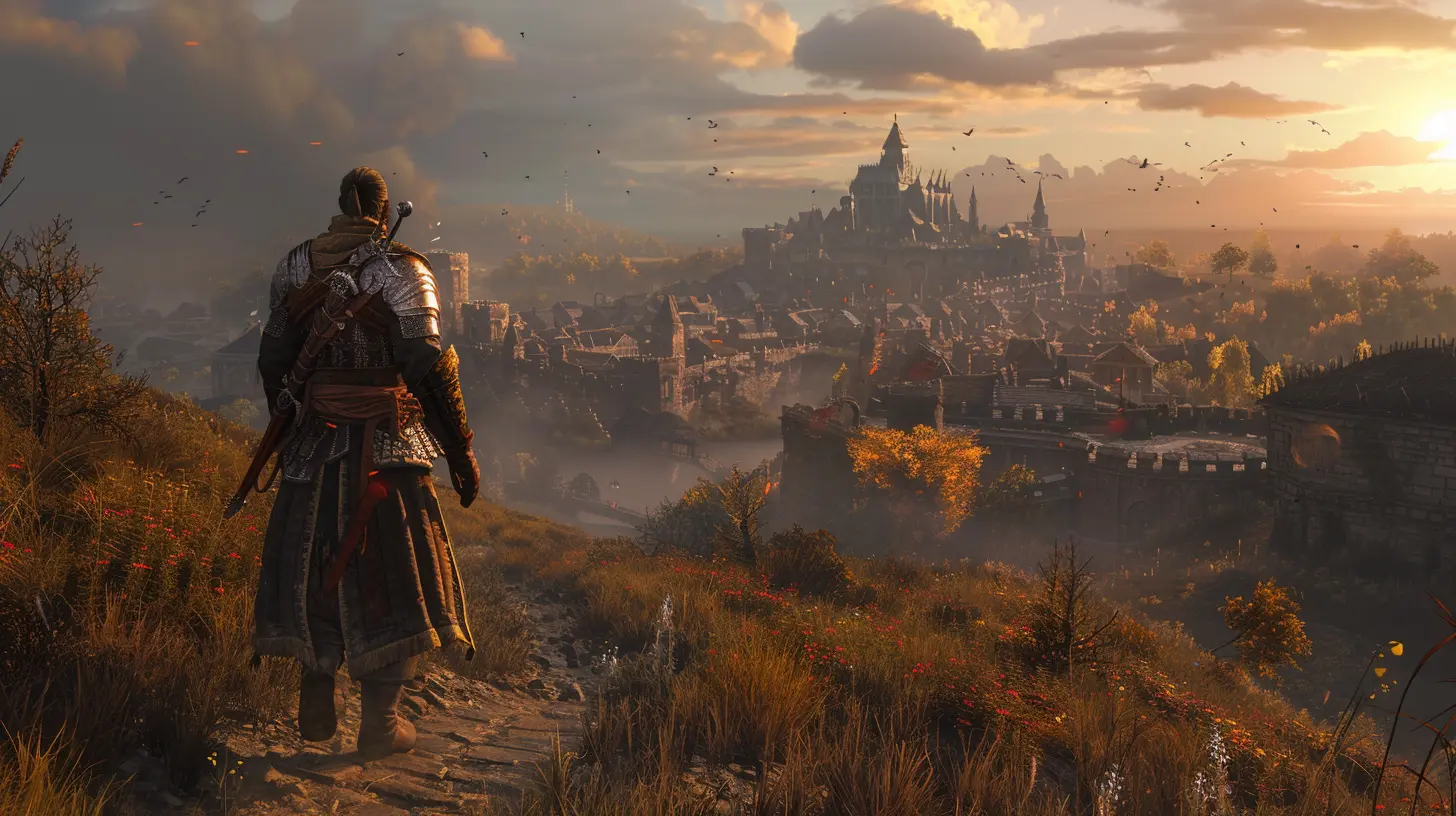
What Exactly Is Modding?
Before we dig into all the juicy bits, let's make sure we're on the same page.Modding is short for modifying. It’s when players go beyond just playing a game and actually start altering it. This could be something as small as changing a character’s outfit or as complex as creating an entirely new game inside an existing one. Some mods fix bugs, others improve graphics, while many go bold with fresh quests, stories, mechanics — even genres.
It’s like turning your IKEA table into a spaceship. Yeah, that wild.
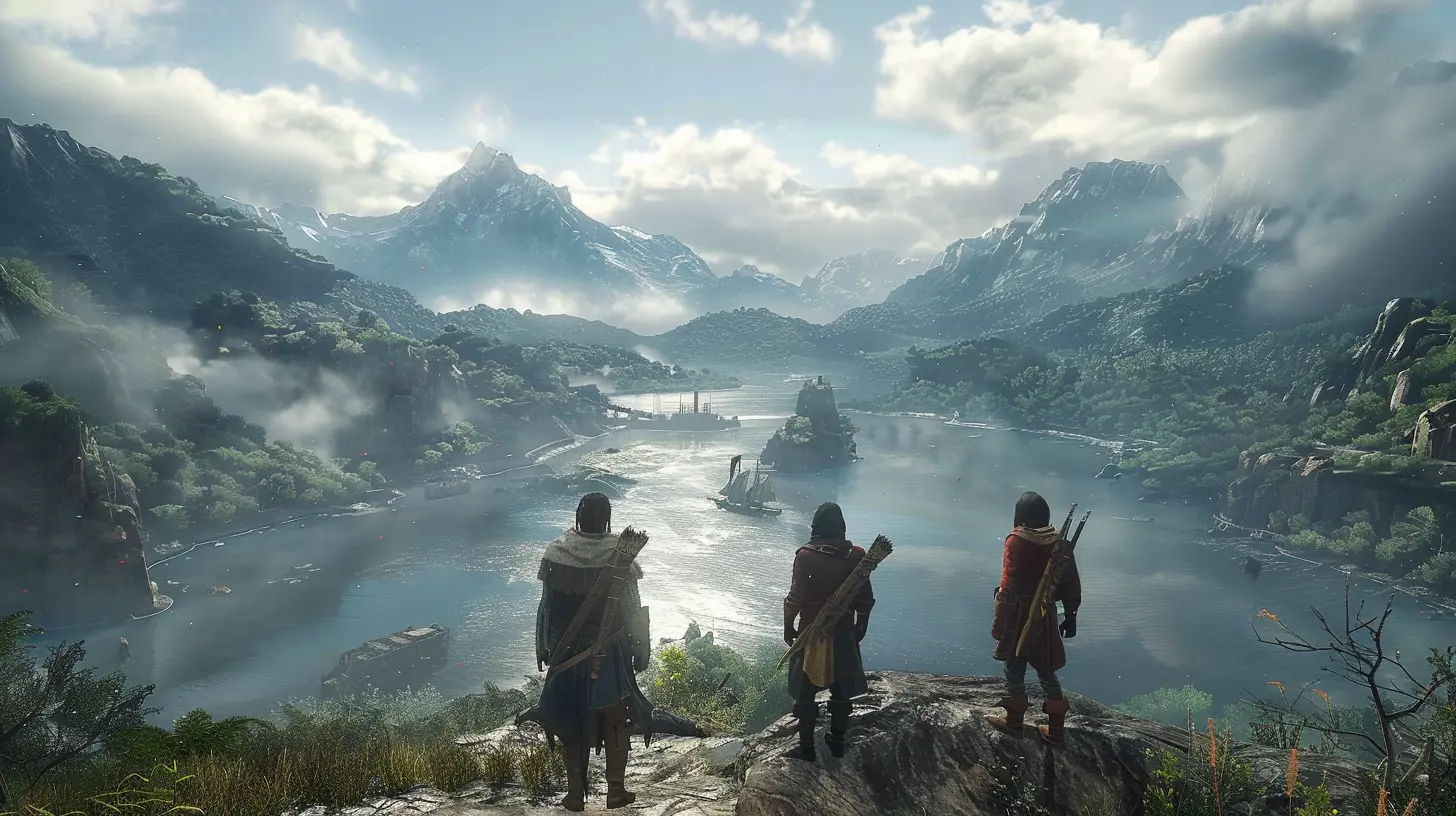
The Undying Life of a Single-Player Title
Here’s the thing about most single-player games: they’re usually designed with a clear beginning, middle, and end. And when you’re done, you’re done. Or are you?Thanks to modding communities, a game launched a decade ago can still feel fresh today. Remember Skyrim? That game came out in 2011, but thanks to thousands of mods — from realistic textures to total conversion packs — it still feels brand new. Actually, in modding circles, the joke goes something like: “Skyrim is never finished, it just respawns with more mods.”
Why does this matter? Because every mod potentially redefines what the game can be. It’s like remix culture in music — same base, new flavor.
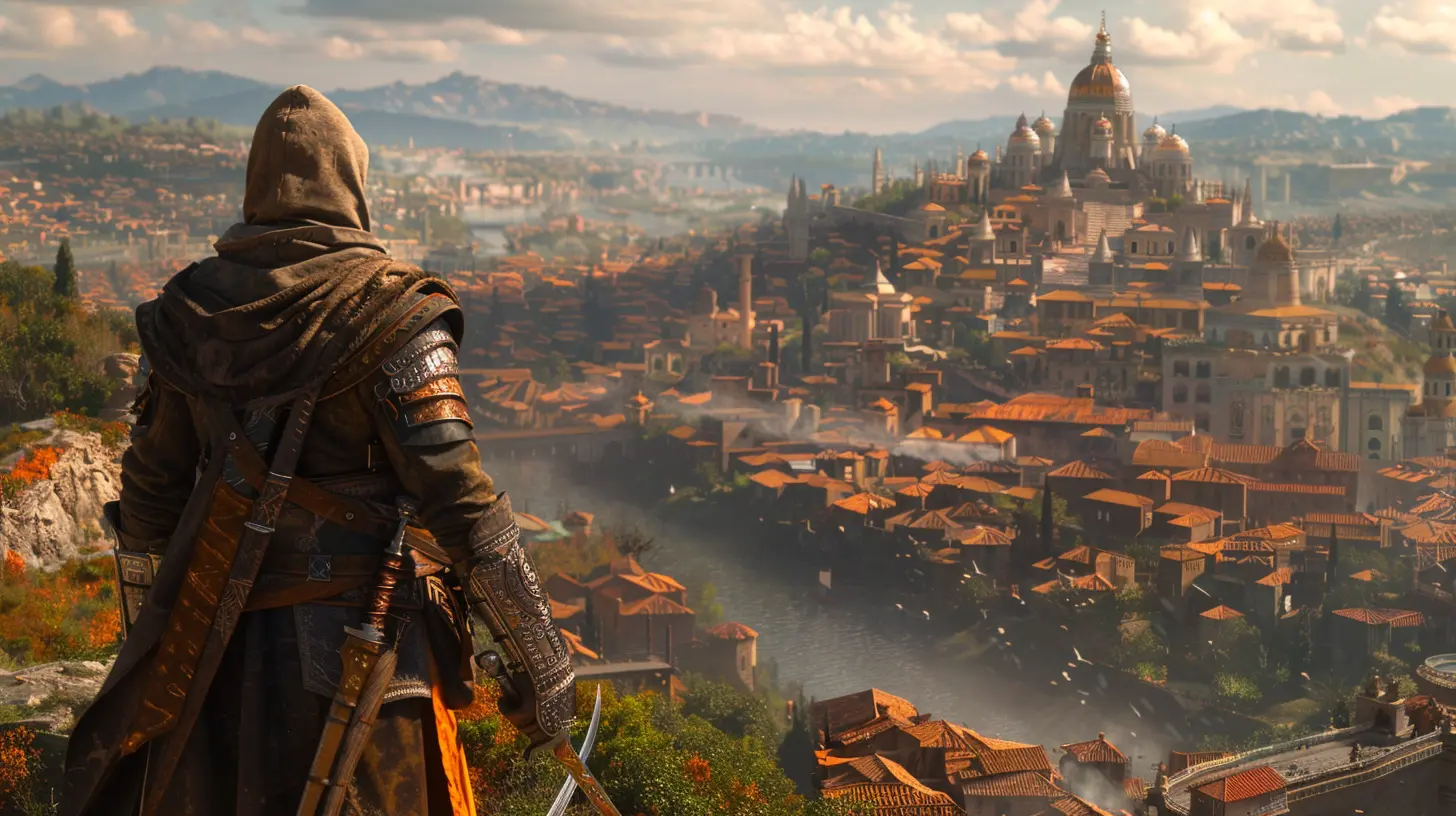
Where Innovation Thrives: The Power of Community
Let’s get real — game developers work under tough constraints. Time, money, pressure from publishers — it all affects what makes it into the final version of a game. Modders, on the other hand? They're free spirits. No deadlines, no stakeholders. Just pure creativity.And here’s what makes single-player game modding really pop: there's no delicate balance to worry about. Multiplayer games need fairness and uniformity (no one likes a cheater), but with single-player? All bets are off. You want a lightsaber in Red Dead Redemption 2? Sure. A talking toaster as your companion in Fallout: New Vegas? Why not?
Modding communities become unofficial R&D labs — experimenting, tweaking, creating new game mechanics and storytelling techniques you never knew you needed until you saw them.
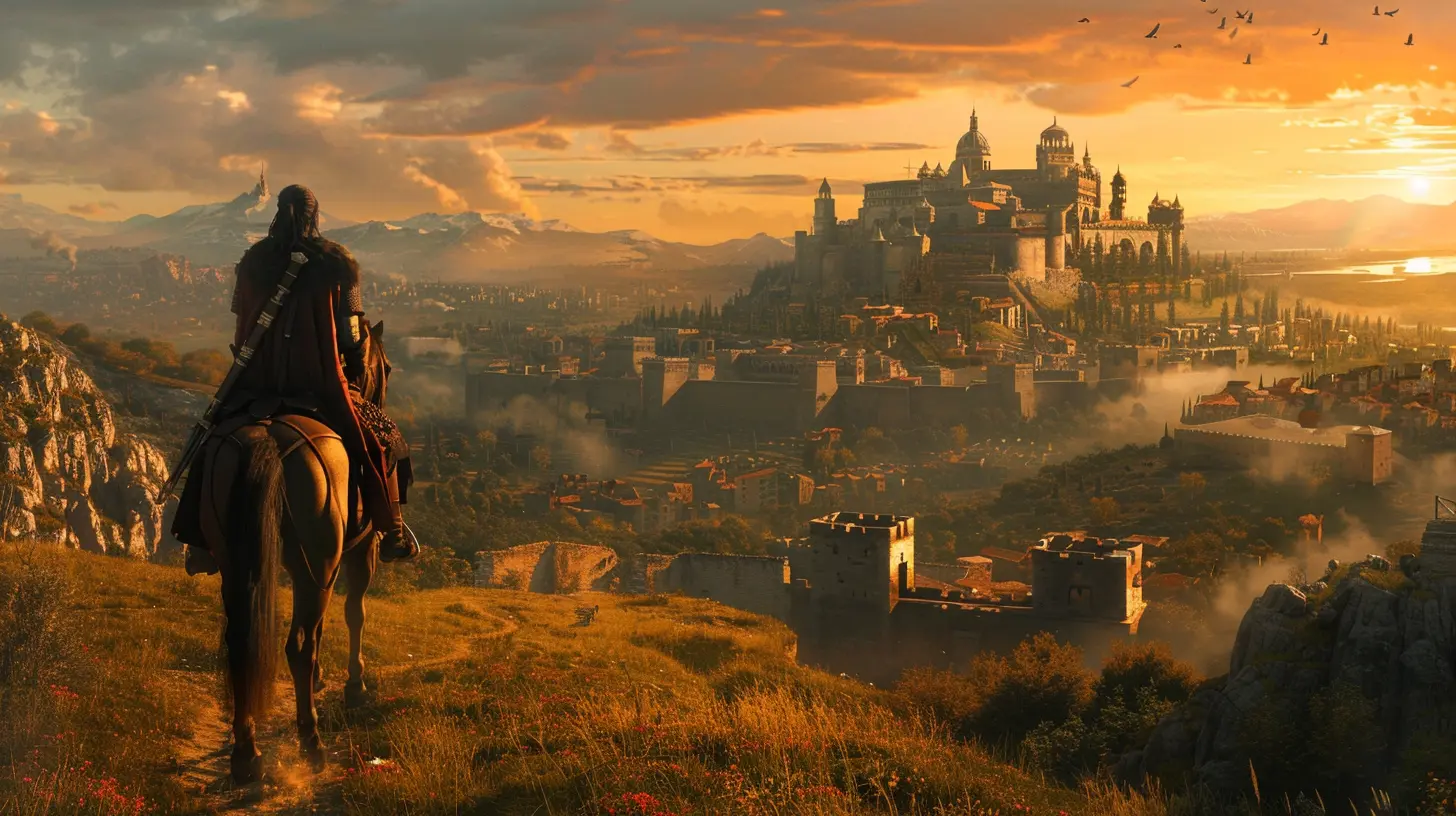
Examples That Speak Volumes
Let’s check out some major instances of modding that turned heads and set benchmarks.Skyrim – The Mod Mecca
This beast of a game deserves its own shout-out. Skyrim has one of the most dedicated modding communities ever. Some mods enhance visuals to jaw-dropping realism. Others add full-fledged storylines that rival the original game’s quests. And then you’ve got totally bonkers ones that turn dragons into Thomas the Tank Engine.Bethesda, the developer, even leaned into this with the Creation Kit, making it easier for fans to craft content. Plus, they’ve re-released the game multiple times — partially fueled by the ongoing modding craze.
The Witcher 3 – From Great to God-Tier
Geralt’s journey was already epic, but mods took it to new levels. Fans fixed bugs, improved the UI, and added high-resolution textures. Some even rebalanced combat to increase difficulty for players seeking more intense fights.What’s more: modders created cinematic tools used by YouTubers to craft their own Witcher stories. The boundaries blurred from playing to storytelling.
Fallout Series – The Wild West of Mods
Fallout: New Vegas has been modded into oblivion — and we say that as a compliment. There are full DLC-sized mods like “The Frontier,” which took years to make and adds a whole new campaign, voice acting, and even vehicles. People didn’t just mod Fallout — they made entirely new games out of it.Stardew Valley – Farming, Your Way
This pixel-perfect farming sim skyrocketed in popularity, and modders wasted no time adding everything from new crops and animals to entirely different aesthetics. Want to turn your farm into a Pokémon paradise? There’s a mod for that.Even better? The developer, ConcernedApe, is a one-man team — and he actually encourages modding. Now that’s mutual love.
How Modding Bridges the Gap Between Developers and Fans
One of the coolest aspects of modding is how it creates a feedback loop between developers and players. Through mods, fans get to show developers what they want more of — whether it’s difficulty tweaks, quality-of-life improvements, or wild, creative ideas.Sometimes, devs take notes. Mods have inspired official updates. In other cases, modders get hired by studios because of their amazing work. It's like a talent pipeline made of passion.
Take the “Dota” series for example (originally a Warcraft III mod). While not a single-player game, it shows the power of mods in shaping the industry. Modders aren’t just fans; they’re future developers in disguise.
Mods: Not Just Cosmetic
It’s tempting to think of mods as purely superficial — a nicer tree here, shinier armor there. But mods often dive deep into game systems.Ever heard of a total conversion mod? That's when modders take an existing game engine and use it to build something entirely new. These mods push technical boundaries and storytelling in ways we’ve never seen.
Some popular total conversion mods include:
- Enderal (for Skyrim) – a new RPG with its own lore, mechanics, and world.
- The Dark Mod (from Doom 3) – turned a sci-fi shooter into a spiritual successor to Thief.
- Black Mesa (Half-Life mod) – a complete remake of the original Half-Life, eventually released as a standalone game.
These are not casual add-ons. These are passion projects built with love, sweat, and a whole lot of caffeine.
The Role of Tools and Accessibility
Here’s a thought: modding wouldn’t be where it is today without the right tools. Game companies that offer modding kits (like Bethesda, CD Projekt Red, and ConcernedApe) are giving fans a metaphorical set of keys to their kingdoms.Modding communities thrive when the barriers to entry are low. Easy-to-use tools, documentation, and supportive forums make all the difference. It’s like giving everyone a paintbrush and saying, “Go wild on this canvas.”
The rise of platforms like Nexus Mods and Steam Workshop has also made it seamless to install and manage mods. That accessibility feeds creativity. And that creativity? It fuels innovation.
A Few Hiccups Along the Way
Now, let’s not pretend everything’s perfect. Modding’s got its hurdles.- Compatibility issues: Load one mod wrong, and your game could crash harder than a Windows 98 PC.
- Copyright troubles: Using assets from other games or media can lead to mods getting taken down.
- Toxicity and control: Sometimes popular modders clash over credit, direction, and community dynamics.
- Paid mods: Remember when Valve tried to monetize Skyrim mods? That didn’t go down well. There's a delicate balance between supporting creators and maintaining freedom.
Still, these hiccups haven’t slowed down the momentum. The spirit of collaboration and experimentation remains strong.
Why This Matters for the Future
In a world where live-service multiplayer games dominate headlines, single-player titles often feel like the underdog. But modding keeps them relevant, alive, and endlessly enjoyable.Even developers see this now. We're seeing more studios embrace modding from the get-go — launching games with tools ready, inviting players into the development process.
Honestly? It’s a win-win situation. Players get more content. Devs get longer game lifespans. Everyone stays engaged in a cycle of creativity.
Wrapping It Up
So, the next time someone tells you single-player games are a dying breed, kindly remind them of the thousands of active mods being created as we speak. Whether it's turning Skyrim into a cyberpunk thriller or injecting realism into GTA with mind-blowing graphics overlays, modders aren’t just extending games…They’re evolving them.
Modding isn't just a hobby — it's a movement. A bridge between what games are and what they could be. And in this age of constant innovation, it might just be the most important force shaping the future of single-player gaming.
So go ahead — download that mod, install your game-changing add-on, and witness firsthand how communities are rewriting the rules of the game.
all images in this post were generated using AI tools
Category:
Single Player GamesAuthor:

Luke Baker
Discussion
rate this article
2 comments
Shannon McCullough
It's inspiring to see how modding communities breathe new life into single-player games, fostering creativity and connection. These innovations remind us of the power of collaboration and shared passion in gaming.
November 6, 2025 at 4:46 AM

Luke Baker
Thank you! Modding communities truly showcase the incredible creativity and collaboration within gaming, continuously rejuvenating single-player experiences.
Solara Acevedo
This article highlights the vital role modding communities play in single-player game innovation, illustrating how player-driven creativity breathes new life into established titles, ultimately enriching the gaming experience and fostering a vibrant culture.
July 25, 2025 at 3:34 AM

Luke Baker
Thank you for your insightful comment! I completely agree—modding communities are essential for keeping single-player games fresh and engaging, driving innovation and creativity in the gaming landscape.
